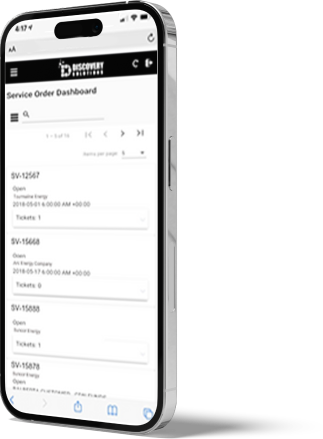An Accountant's Best Friend - ERP



We all love Accountants, right? OF COURSE!
Accountants play a crucial role in managing financial data, ensuring compliance, and providing accurate insights for decision-making. To meet these demands efficiently, many accounting professionals are turning to Enterprise Resource Planning (ERP) systems. This article explores the multitude of advantages that Accountants can experience by implementing an ERP system (like DMS), with a particular focus on how it optimizes month-end closing processes.
Understanding ERP Systems
Before we delve into the benefits, it's essential to understand what an ERP system is. ERP systems integrate various business functions, including accounting, finance, human resources, inventory management, and more, into a centralized database. This comprehensive approach allows for smooth data flow, real-time visibility, and enhanced collaboration across departments. These capabilities enable businesses to operate more efficiently and make data-driven decisions.
Enhanced Accuracy and Data Integrity
One of the primary benefits of implementing an ERP system for accountants is the improved accuracy and data integrity it brings to financial operations. With disparate systems and manual processes, the risk of errors and data inconsistencies increases significantly. An ERP system addresses these challenges by automating repetitive tasks like data entry, minimizing the chances of human error. By maintaining a single source of truth for financial data, Accountants can trust that the information they work with is accurate and up to date. This reliability allows them to make well-informed decisions with confidence.
Efficient Month-End Closing Processes
Month-end closing is a crucial and often demanding task for Accountants. It involves reconciling accounts, generating financial statements, and ensuring compliance with regulations. With an ERP system in place, these processes can be streamlined and expedited, reducing the time and effort required.
An ERP system automates routine tasks such as journal entries, intercompany eliminations, and reconciliations, saving accountants significant time and effort. By eliminating manual data gathering and consolidating financial information in real-time, an ERP system enables Accountants to close their books faster, often within days rather than weeks. This increased efficiency allows them to shift their focus to value-added activities such as data analysis and strategic planning.
Real-Time Visibility and Reporting
ERP systems provide real-time visibility into financial data, empowering Accountants with accurate and up-to-date information. Traditional accounting systems often lack this feature, leading to delays in accessing critical financial data required for decision-making.
With an ERP system, accountants can generate on-demand financial reports, conduct ad-hoc analyses, and monitor key performance indicators (KPIs) in real-time. This level of visibility enables them to identify trends, detect anomalies, and proactively address potential issues before they escalate. It also facilitates timely financial reporting to stakeholders, promoting transparency and trust.
Seamless Integration and Collaboration
Accountants rely on collaboration with various departments to gather data, validate transactions, and ensure accuracy. An ERP system facilitates seamless integration and collaboration across departments, eliminating silos and promoting cross-functional cooperation.
By centralizing data and automating workflows, an ERP system enables accountants to collaborate effectively with colleagues from different functions, such as procurement, sales, and human resources. They can easily access relevant information, securely share data, and coordinate tasks, leading to improved accuracy and efficiency throughout the organization.
Enhanced Compliance and Auditability
Compliance with regulatory standards and audit requirements is crucial in accounting. ERP systems significantly enhance compliance by enforcing internal controls, automating compliance-related workflows, and maintaining comprehensive audit trails.
With an ERP system, Accountants can implement segregation of duties, access controls, and approval workflows to ensure appropriate processing and authorization of financial transactions. The system can also generate audit trails that track every transaction, providing a detailed record of all activities. This level of transparency and traceability simplifies the audit process and helps Accountants demonstrate compliance with regulatory standards and internal policies.
Improved Efficiency and Productivity
By automating manual tasks, eliminating data redundancy, and providing real-time access to information, ERP systems significantly improve efficiency and productivity for Accountants. They no longer need to spend excessive time on data entry, reconciliations, or searching for information across multiple systems. Instead, they can focus on higher-value activities such as financial analysis, forecasting, and strategic planning.
The streamlined workflows and standardized processes within an ERP system also reduce the likelihood of bottlenecks and delays, enabling Accountants to complete their tasks more efficiently. The system's built-in validation and error-checking capabilities further minimize the need for rework and corrections, saving valuable time and effort.
Scalability and Adaptability
As businesses grow and evolve, their accounting needs change as well. ERP systems offer scalability and adaptability, allowing Accountants to handle increasing volumes of data and adapt to changing business requirements.
Whether it's adding new subsidiaries, expanding into new markets, or integrating additional modules, an ERP system can accommodate these changes seamlessly. This flexibility ensures that Accountants can continue to meet their responsibilities effectively, regardless of the organization's size or complexity.
Implementing an ERP system offers numerous benefits for accountants, transforming their day-to-day operations and enabling them to add greater value to their organizations. By enhancing accuracy, streamlining month-end closing processes, providing real-time visibility, facilitating collaboration, ensuring compliance, improving efficiency, and offering scalability, ERP systems empower accountants to optimize their workflow and make informed decisions.
Furthermore, the time-consuming month-end closing processes, traditionally plagued by manual tasks and data inconsistencies, can be dramatically improved with an ERP system. The automation and integration capabilities reduce the time and effort required for closing, enabling Accountants to close their books faster, gain real-time insights, and focus on analysis and strategic planning.
In today's dynamic business environment, Accountants need a robust and comprehensive toolset to fulfill their responsibilities effectively. Implementing an ERP system not only empowers Accountants but also benefits the organization as a whole by enhancing financial accuracy, improving decision-making, and fostering operational efficiency. By embracing the power of ERP, Accountants can position themselves as strategic partners and catalysts for growth in their organizations.

Book a Call





